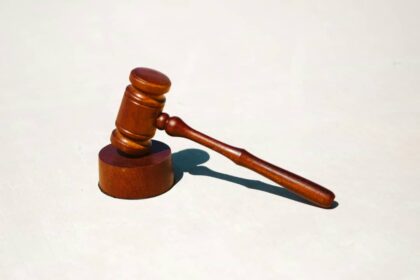Filing a lawsuit in Nigeria involves navigating the country’s legal framework, which blends common law, statutory law, islamic law and customary law. While the process may seem daunting, understanding the steps involved can make it more manageable. Here’s a practical guide to filing a lawsuit in Nigeria:
Understand the Basis for Your Lawsuit
First determine if you have a valid legal claim before filing a law suit.
At this juncture, it is important that you consult a lawyer to evaluate your case and advise you on its merits.
Choose the Appropriate Court
In Nigeria, Courts are vested with jurisdiction to handle specific matter. Ensure you file your case in the correct Court. There are different Courts in Nigeria and they include:
Supreme Court: This is the apex/final Court in Nigeria. It was established by the Constitution of the Federal Repiblic of Nigeria to hear Appeals from the decisions of the Court of Appeal. The Court also has original jurisdiction to hear cases involving the Federal Givernment and a State Government.
Court of Appeal: This is an appellate Court, established by the Constitution to hear Appeals from the High Court, Customary Court of Appeal, Sharia Court of Appeal, Federal High Court and the National Industrial Court. The Court also has original jurisdiction to hear election petition bothering on the election of the President of the Federal Republic of Nigeria.
State High Courts: Deal with complex civil and criminal cases at first instance. The Court is established by Constitution for each State of the federation of Nigeria. Its jurisdiction is provided for in the Constitution.
Federal High Court: Handles cases involving federal laws, such as taxation and intellectual property, etc.The Court is established by Constitution. Its jurisdiction is provided for in the Constitution.
National Industrial Court: Handles labour disputes.The Court is established by Constitution. Its jurisdiction is provided for in the Constitution.
Customary Court of Appeal: Hears Appeals from the Customary Court. The Court is established by Constitution. Its jurisdiction is provided for in the Constitution.
Sharia Court of Appeal: Hears Appeals from Sharia Court. The Court is established by Constitution. Its jurisdiction is provided for in the Constitution.
Magistrate Courts: Handle minor civil and criminal cases.The Court was established by a Law passed by the House of Assembly.
Customary Court and Sharia Court: Govern disputes based on customary or Islamic law respectively in applicable regions.The jurisdiction depends on the subject matter and monetary value of the claim.the Courts were established by a Law passed by the House of Assembly.
There are also other Tribunals established by statute in Nigeria.
Gather Evidence
With the assistance of your lawyer gather strong and relevant evidence. The Court deals with evidence and not speculation. Gather documents, contracts, photographs, etc that support your claim. Your lawyer will ensure that all evidence is well-organized and admissible in court.
Consult a Lawyer
Legal representation is highly recommended. A lawyer will:
Take your brief
Review your case
Advice on the best approach
Carry out legal research
Draft court documents
File the case on your behalf
Provide guidance on legal procedures
Represent you during hearings
Ensure your lawyer is licensed to practice.
File the Necessary Court Documents
To initiate the lawsuit, you need to file an originating process at the appropriate court to initiate the suit. The kind or originating process depends on the particular court the suit is being filed.
You will also need to pay a filing fee, which varies based on the court and the nature of the case.
Serve the Defendant
After filing, the court will issue the necessary documents to the defendant(s). This is known as service of process, and it ensures that all parties are informed of the lawsuit. Proper service is crucial. The defendant must be served in the manner provided for in the Rules of Court.
Prepare for Preliminary Proceedings
Once the defendant responds by filing necessary process, and the claimant (you) responds by filling another process (if necessary), issues are effectively joined. Depending on the jurisdiction and Court, preliminary proceedings may be scheduled, such as case management conferences. These steps aim to narrow the issues and, if possible, resolve the dispute without a full trial.
Attend Court Hearings
If the case proceeds to trial, both parties will present their evidence before the judge by calling witnesses to testify on their behalf and tendering all relevant documents. Be prepared to:
Attend all hearings (optional)
Provide testimony, if required
Cross-examine witnesses through your lawyer
Obtain a Judgment
After the trial and adoption of final wrtten addreses, the court will deliver a judgment. If you win, the court may award damages, order specific performance, or other remedies. If you lose, you will have the option to appeal the decision to a higher court.
Enforce the Judgment
Winning a case does not automatically mean you will receive compensation. If the defendant fails to comply with the judgment, you may need to initiate enforcement proceedings, such as garnishee proceedings, attachment of properties of Judgment Debtor, etc.
Tips for a Successful Lawsuit
Be timely: Lawsuits must be filed within the time stipulated by statute.
Document everything: Keep thorough records of all interactions and evidence.
Follow legal advice: Rely on your lawyer’s expertise to navigate procedural nuances.
ETC
Filing a lawsuit in Nigeria requires diligence, preparation, and often legal assistance. By understanding the steps and working closely with a competent lawyer, you can navigate the system effectively.











